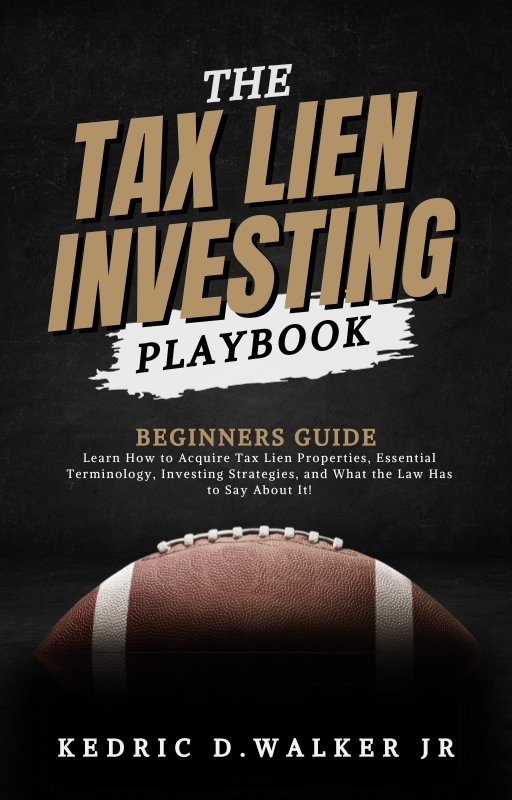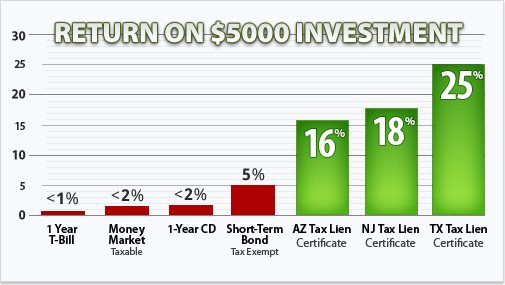All Categories
Featured
Table of Contents
In most cases, you will certainly need to outbid various other investors by supplying to pay a higher costs (tax lien certificate investment). This premium is normally much less than the actual quantity of tax obligations owed, however it's up to the financier to decide if the risk deserves the collection incentive. In many areas, real estate tax are around one percent of the home's value

Tax obligation lien capitalists make their money on the rate of interest payments they collect when the property owner repays the tax obligations they owe. In some areas, these rate of interest are as high as 18 percent, which is greater than the average charge card rate of interest price. Building proprietors can pay what they owe simultaneously, or they can go on a payment plan ranging from one to 3 years.
Tax Lien Investing Pitfalls
In the above example, a person with an impressive tax debt of $4k (two years of back tax obligations) would be providing a tax lien owner with potentially approximately $720 in passion payments, collaborating with the 18 percent passion rate we mentioned previously. Among the best advantages to tax lien financiers is the potential to acquire a new property for their property portfolio, without needing to pay its market price.

This is an approach that several actual estate financiers utilize to obtain underestimated residential or commercial properties or troubled properties. And if the homeowner does pay their debts, they will still earn a profit in the type of passion. It's a great deal for the tax lien financier. There are some cons to tax lien investing.
When the lien is paid, the financier needs to go on and seek a new financial investment. Obviously, if the homeowner is still in default, the lien owner will get the building, which can end up being a persisting source of earnings. Someone that buys a tax lien may locate themselves knotted with other liens on the building, particularly if they wind up declaring the property in the event that the debt goes unpaid.
This might bring about great deals of legal fights, which is why it is very important to deal with legal representatives and tax obligation consultants who understand things like action vs title. and can help with carrying out due persistance on a building. The laws around tax lien investing (and related issueslike foreclosing on renters) are not consistent across states that use financiers the capacity to join a tax lien sale.
Offered that tax liens are often sold at public auction, contending prospective buyers will certainly bid up the premium and bid down the rate of interest that can be accumulated on the overdue tax obligations. The winner of the auction will certainly be the real estate financier who is paying the highest possible costs and getting the most affordable rate of interest in return.
Tax Liens Investment
In this vein, tax lien investing is a little a lot more sport-like than standard passive means of gaining income. The very first thing you'll wish to do is obtain aware of the area you're taking into consideration in terms of the genuine estate market. Remember that one advantage of becoming a lienholder is collecting the residential or commercial property if the financial obligation goes overdue, so you will need to understand where that property is.
As soon as you have actually figured out these details out, you need to contact your neighborhood region treasurer's office to learn when and where the following tax lien auction is being held. These public auctions are often held in person, however in today's day and age, much of have transitioned to online places.

Most regional documents publish these lists yearly or semiannually. This can offer you a great idea concerning upcoming chances. Bear in mind that real estate tax are usually one percent of the home value, however unpaid taxes collecting over a number of years may be an extra substantial quantity. You can utilize your own cash reserves or check out choices like property crowdfunding to get the capital you require.
Tax Liens Investments
it has actually the included perk of obtaining the home if the financial debt continues to be overdue. While it can be a financially rewarding opportunity for the capitalist, it does need some strategic maneuvering. Occupants and homeowner do have lawful protections that make tax lien investing a much more involved process than simply bidding to purchase a financial debt and waiting to gather the payment.
Buying tax liens involves purchasing a lawful insurance claim on a property because of unpaid real estate tax. This technique of investing has actually gotten popularity due to its possibility for high returns with fairly reduced initial resources. Tax liens are commonly cost auctions, and the process can vary depending upon the area.

Capitalists look for out tax obligation liens for numerous factors: 1. Low Initial Investment: Tax obligation lien investing commonly calls for a small quantity of money to begin, making it accessible to a wide range of investors.
Tax Lien And Tax Deed Investing
Building Purchase: If the residential property owner fails to pay the overdue tax obligations and interest within the redemption duration, the capitalist may have the right to seize and acquire the building. When financiers acquire a tax lien, they pay the overdue taxes on a property and obtain a tax lien certification.
There are 2 prospective results: 1. Repayment by the Home Proprietor: The residential property owner pays back the overdue taxes plus interest within a given period, and the investor gets the payment with interest. This is one of the most usual outcome. 2. Repossession: If the residential or commercial property proprietor does not repay the taxes within the redemption duration, the capitalist can initiate foreclosure procedures to obtain the residential or commercial property.
The self-directed individual retirement account acquisitions the lien certification and pays linked costs. Suppose the homeowner pays back the lien, and the earnings go back to the individual retirement account. If the home is foreclosed and marketed, the sale earnings additionally return to the IRA, possibly growing the retirement cost savings. Tax Lien: The government markets a lien on the residential or commercial property due to overdue tax obligations.
Is Investing In Tax Liens A Good Idea
Tax Deed: The federal government sells the real act to the residential property at public auction. According to the National Tax Obligation Lien Organization (NTLA), 36 states and 2,500 jurisdictions within the US allow for the sale of tax liens, while just 31 states allow tax obligation action sales.
Latest Posts
Tax Seizure Auction
Tax Lien Investing For Beginners
Houses Up For Sale For Back Taxes